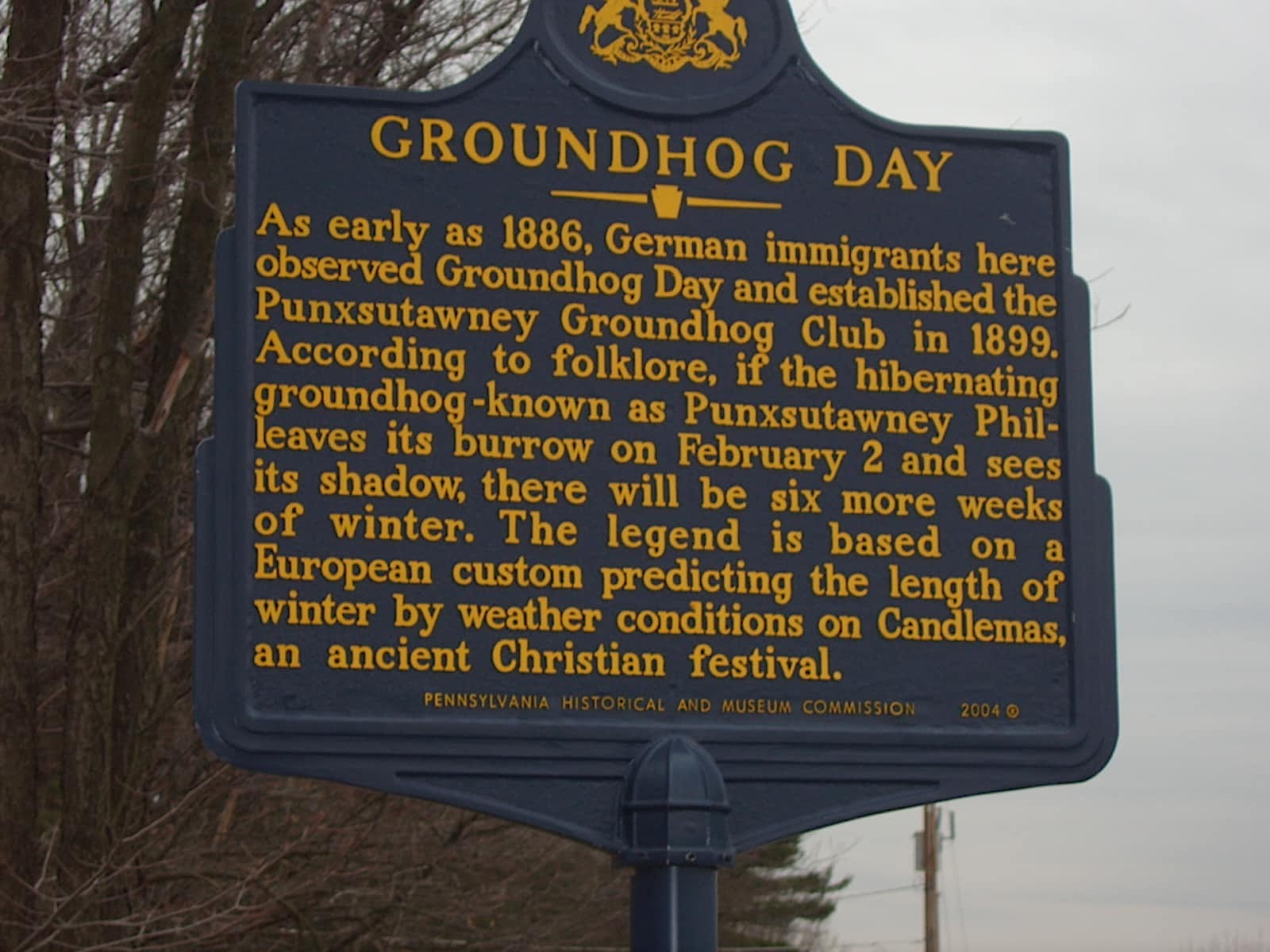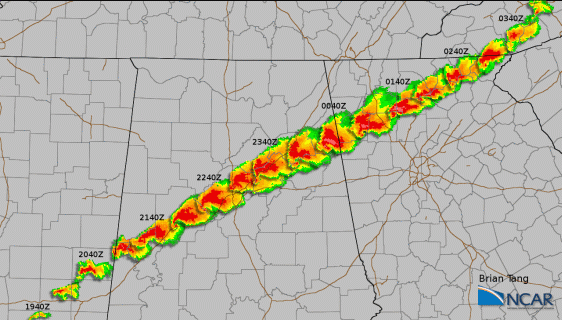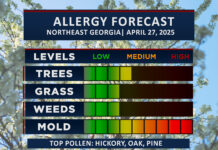
It’s Groundhog Day, and rodent prognosticators are predicting the weather. Will we have six more weeks of winter or an early spring?
General Beauregard “Beau” Lee in Jackson, Georgia, says to keep your coats out for a while longer. On Sunday morning, Beau predicted “six more weeks of the wintery stuff,” according to Ike English, director of the Dauset Trails Nature Center in Jackson, Georgia, where Beau lives.
Origins of Groundhog Day
Most likely originating in Germany, Groundhog Day marks the unofficial turn of the season when people start looking toward the changing seasons.
Although the roots of this strange holiday trace back hundreds of years, the first Groundhog Day ceremony took place in 1887 in Punxsutawney, Pennsylvania. Since then, the holiday has taken on an amusing meaning and results in some fun celebrations.

Punxsutawney Phil is the best-known groundhog in the world, and his predictions for the weather are widely circulated. When he wakes up from his “hibernation” on February 2nd, he will leave his den to find clouds or sunshine. If Phil sees his shadow, he will return inside and sleep for six more weeks because winter will continue.
No shadow means an early spring.
Beau knows weather…or does he?
Here in Georgia, we have our own prognosticating Marmota Monax. Ours is named General Beauregard Lee, or “Beau” for short. Since 1982, Beau has been making predictions for the southern states. For 27 years, this southern groundhog lived at Yellow River Game Ranch in Gwinnett County. When the ranch suddenly closed in December 2017, Beau was relocated to Dauset Trails Nature Center in Jackson.
During his time as ‘weatherman,’ Beau has forecasted an early spring a whopping 90% of the time. His only four long winter predictions came in 2013, and then three in a row for 2018, 2019, and 2020.
While plenty of groundhogs are out there making these predictions, NOAA ranked Lee number 2 in accuracy. Just how accurate is that for us here in Northeast Georgia, though? For the sake of this article, I’ll be using the weather as recorded at the Habersham County Airport, which has data going back to 1920.
First, we must decide what an “early spring” is for these predictions to mean anything. The last frost, average temperature, and snowfall after February 2nd are all good things to measure.
Last frost
Let’s start with the last frost: Since Beau began predicting in 1982, Cornelia’s average last frost date is April 2nd. Suppose we look at the 30 years before that (that we assume Beau would know about since he is a weatherman, after all). That average is a considerably later April 18th. So, let’s split the difference and call it April 10th. Using that date, Beau would have been correct 27 of the 43 times or 62.7%: not bad for a groundhog. If you move the date backward a bit at the beginning and earlier towards the end of his tenure, the percentage even gets a little higher (possibly up to 80% or more).
Interestingly, none of his late winter predictions would have been correct.
Temps
The average temperature is another point of accuracy to consider. This one is a little more complicated because exactly what we look at is uncertain. In this case, we’ll go with the actual “average temperature,” or the temperature when you take every hour of the month and mash it together. This can help smooth out any extremes in any given month.
From 1950-2024, the average temperature in February was 43.2º. It was 50.2º for March and 58.4º for April. Assuming above average means an early spring, Beau would have been correct 24/43 times for February, 27/43 for March, and 23/43 times for April. That’s 55.8%, 62.7%, and 53.4%, respectively, for a forecasting accuracy level of 57.3%.
Snowfall
If you measure a late winter by snowfall, Beau’s success rate is ridiculously high.
Since 1982, Cornelia has only received measurable snowfall five times after February 2nd. These snows came in 1983, 1984, 1993, 2020 and 2021. Beau got 2020 wrong with the late winter and missed the other four, predicting an early spring, but that is still 35 of 40, which is a whopping 87.5% success rate. You didn’t need a groundhog to tell you snow was rare, though, did you?
What the calendar says
Beau made his latest prediction of a long winter at 7:30 a.m. on Feb. 2, 2025, marking only the 5th such prediction for him. None of his previous predictions of a long winter have worked out great, so perhaps that is good news for warm weather lovers.
Still, this Groundhog Day begs the question, is Beau one of the best weather forecasters in Georgia? He certainly does better than average, although not by a whole lot. He may do a better job for South Georgia than he does here locally (we have our own groundhog, Yonah, in White County, but his available stats only go back to 2020).
Despite what the groundhogs say—regardless of the last frost, temperatures, or snowfall— there are six more weeks of “winter” as far as official seasons go. The Spring Equinox occurs on March 20th at 5:01 a.m. this year.







